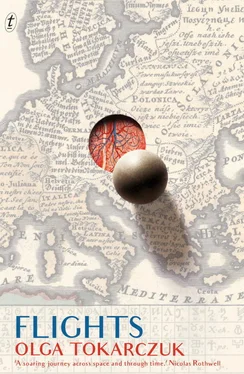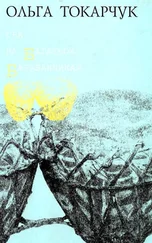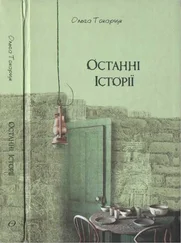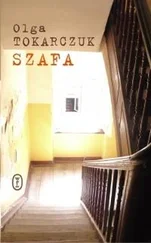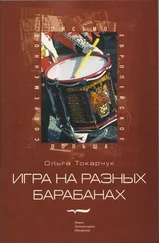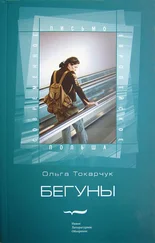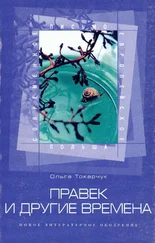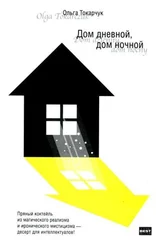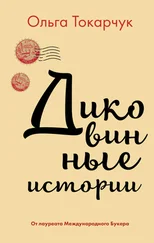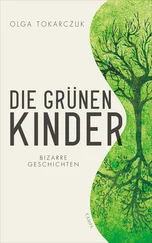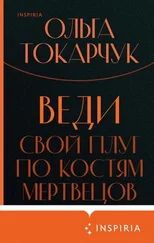The muscles of a dead, splayed frog would flex and straighten to the rhythm of electrical pulses, but in a way that had not yet been described in our textbooks – it would gesture to us, its limbs clearly making menacing and mocking signs, thereby contradicting our hallowed faith in the mechanical innocence of physiological reflexes.
Here we were taught that the world could be described, and even explained, by means of simple answers to intelligent questions. That in its essence the world was inert and dead, governed by fairly simple laws that needed to be explained and made public – if possible with the aid of diagrams. We were required to do experiments. To formulate hypotheses. To verify. We were inducted into the mysteries of statistics, taught to believe that equipped with such a tool we would be able to perfectly describe all the workings of the world – that ninety per cent is more significant than five.
But if there’s one thing I know now, it’s that anyone looking for order ought to steer clear of psychology altogether. Go for physiology or theology instead, where at least you’ll have solid backing – either in matter or in spirit – instead of psychology’s slippery terrain. The psyche is quite a tenuous object of study.
It turned out it was true what some people said about psychology being a degree you choose not because of the job you want, or out of curiosity or a vocation to help others, but rather for another very simple reason. I think all of us had some sort of deeply hidden defect, although we no doubt all gave the impression of intelligent, healthy young people – the defect was masked, skilfully camouflaged during our entrance exams. A ball of tautly tangled emotions breaking down, like those strange tumours that turn up sometimes in the human body and that can be seen in any self-respecting museum of pathological anatomy. Although what if our examiners were the same sort of people, who knew exactly what they were doing in selecting us? In that case, we would be their direct heirs. When, in our second year, we discussed the function of defence mechanisms and found that we were humbled by the power of that portion of our psyche, we began to understand that if it weren’t for rationalization, sublimation, denial – all the little tricks we let ourselves perform – if instead we simply saw the world as it was, with nothing to protect us, honestly and courageously, it would break our hearts.
What we learned at university was that we are made up of defences, of shields and armour, that we are cities whose architecture essentially comes down to walls, ramparts, strongholds: bunker states.
Every test, questionnaire, and study we also conducted on each other, so that by the time we got through our third year I had a name for what was wrong with me; it was like discovering my own secret name, the name that summons one to an initiation.
I didn’t exercise the trade for which I’d trained for very long. During one of my expeditions, when I had gotten stuck in a big city with no money and was working as a maid, I started writing a book. It was a story for travellers, meant to be read on the train – what I would write for myself to read. A bite-sized snack of a book, that you could swallow whole.
I was able to concentrate and became for some time a sort of gargantuan ear that listened to murmurs and echoes and whispers, far-off voices that filtered through the walls. But I never became a real writer. Life always managed to elude me. I’d only ever find its tracks, the skin it sloughed off. By the time I had determined its location, it had already gone somewhere else. And all I’d find were signs that it had been there, like those scrawlings on the trunks of trees in parks that merely mark a person’s passing presence. In my writing, life would turn into incomplete stories, dreamlike tales, would show up from afar in odd dislocated panoramas, or in cross sections – and so it would be almost impossible to reach any conclusions as to the whole.
Anyone who has ever tried to write a novel knows what an arduous task it is, undoubtedly one of the worst ways of occupying oneself. You have to remain within yourself all the time, in solitary confinement. It’s a controlled psychosis, an obsessive paranoia manacled to work, completely lacking in the feather pens and bustles and Venetian masks we would ordinarily associate with it, clothed instead in a butcher’s apron and rubber boots, eviscerating knife in hand. You can only barely see from that writerly cellar the feet of passers-by, hear the rapping of their heels. Every so often someone stops and bends down and glances in through the window, and then you get a glimpse of a human face, maybe even exchange a few words. But ultimately the mind is so occupied with its own act, a play staged by the self for the self in a hasty, makeshift cabinet of curiosities peopled by author and character, narrator and reader, the person describing and the person being described, that feet, shoes, heels, and faces become, sooner or later, mere components of that act.
I don’t regret developing a taste for this odd occupation: I would not have made a good psychologist. I never knew how to explain, how to call forth family photos from the depths of someone’s thoughts. And the confessions of others more often than not simply bored me, though it does pain me to admit it. But to be honest, it was often the case that I would have preferred to reverse the relationship and start talking to them about me. I had to watch myself to keep from suddenly grabbing the patient by her sleeve and interrupting her mid-sentence: ‘I can’t believe you! I have a completely different reaction! Well, you won’t believe the dream that I just had!’ Or: ‘What do you know about insomnia, sir? And that’s what you call a panic attack? Surely you’re joking. The panic attack I had not too long ago, on the other hand…’
I didn’t know how to listen. I didn’t observe boundaries; I’d slip into transference. I didn’t believe in statistics or verifying theories. The postulate of one personality to one person always struck me as overly minimalist. I had a tendency to blur what seemed clear and to question irrefutable arguments – it was a habit I had, a perverse mental yoga, the subtle pleasure of experiencing internal motion. I would examine with suspicion every judgement, turn each one over in my mouth, until finally I figured out what I’d expected: not a single one of them was right, they were all fakes, knock-offs. I didn’t want to have set opinions, which were just excess baggage. In debates, I’d be on one side one time and the other the next – which I know never endeared me to my interlocutors. I was witness to a strange phenomenon that occurred in my mind: the more I would find arguments for something, the more arguments against it would occur to me, too, and the more I grew attached to those arguments in favour, the more alluring the opposition became.
How was I supposed to analyse others when it was hard enough for me to get through all those tests? Personality diagnostics, surveys, multiple columns of multiple-choice questions all struck me as too hard. I noticed this handicap of mine right away, which is why at university, whenever we were analysing each other for practice, I would give all of my answers at random, whatever happened to occur to me. I’d wind up with the strangest personality profiles – curves on a coordinate axis. ‘Do you believe that the best decision is also the decision that is easiest to change?’ Do I believe? What kind of decision? Change? When? Easiest how? ‘When you walk into a room, do you tend to head for the middle or the edges?’ What room? And when? Is the room empty, or are there plush red couches in it? What about the windows? What kind of view do they have? The book question: would I rather read one than go to a party, or does it also depend on what kind of book it is and what kind of party?
Читать дальше
